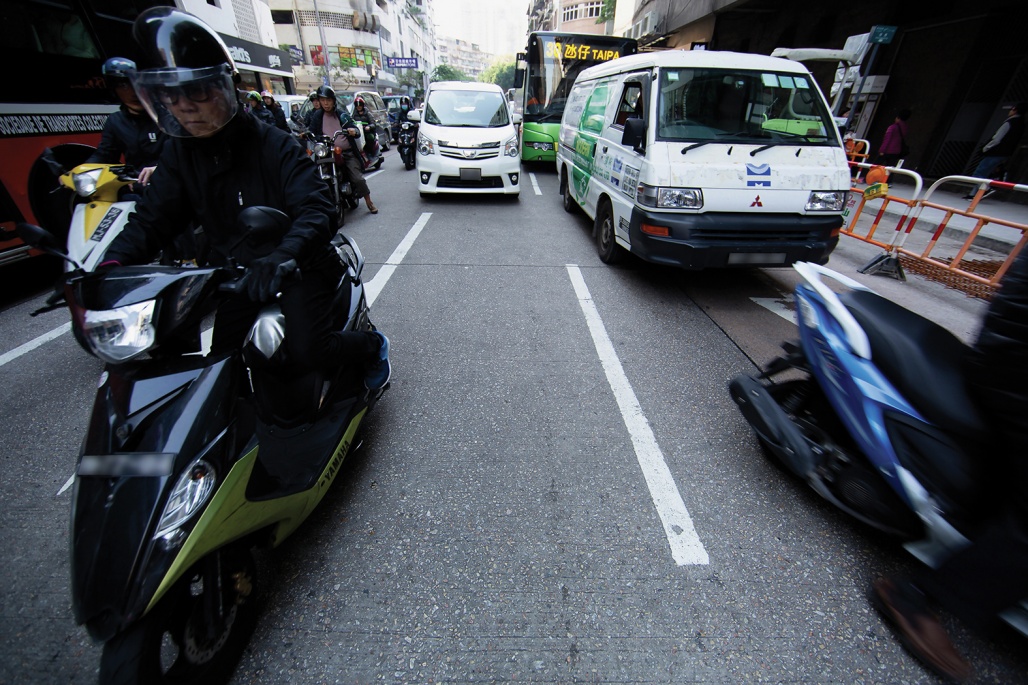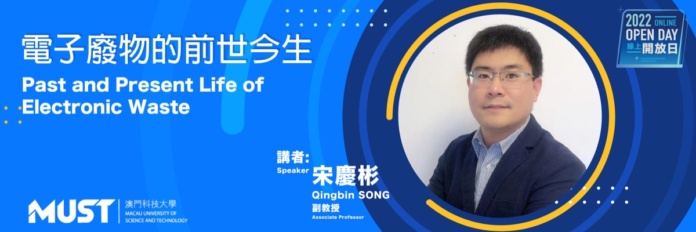Qingbin Song, a professor at Macau University of Science and Technology, is one of Macau’s most authoritative voices in the study of the environmental impacts of climate change. He explained his priorities to Macau Business.
Macau Business | July 2024 | Special Report | How climate change(s) Macau
As Macau is not a relevant producer of CO2, there may be a temptation to do nothing locally to mitigate these impacts. How do you interpret it? Is the local population aware of the problem of climate change?
Qingbin Song – As an international tourist service city, the energy and resources consumed by Macau’s urban development mainly come from China (Mainland, Hong Kong) and other countries/regions, and the proportion of direct carbon emissions is relatively low. According to the long-term carbon reduction strategy report issued by Macau Environmental Protection Bureau, indirect emissions from overseas electricity in Macau account for about 60 percent of the total emissions, while local direct emissions only account for 40 percent of the total emissions . However, it should be noted that as a responsible international city, Macau should review its carbon emissions from the perspective of whole life-cycle thinking, which is also consistent with the transformation of global environmental governance from end treatment to source control. Thus, it is necessary to pay more attention on the carbon emissions of the entire industrial chain from society, economy, and trade in Macau. Macau can contribute its efforts to mitigate regional, national, and even though global climate change through green purchasing, green finance, and other ways.

For local residents, our research team has explored residents’ perceptions of climate change through behavioural science method. 72.29 percent of Macau residents believe that their non-energy-saving behaviour will aggravate climate change. Meanwhile, 96.61 percent of university students in Macau think that it is necessary to save energy in order to reduce the environmental impact caused by climate change, according to a research from 2019. Residents with better awareness on climate change are more likely to support climate-friendly policies and take climate-friendly actions. Most residents are generally aware of the environmental problems caused by climate change. However, the residents’ attention doesn’t mean the wide understanding on the knowledge and ability of climate change and its mitigation. Cooperating with the implementation of long-term carbon reduction strategy in Macau, the government should still increase more publicity to cultivate residents’ climate change awareness, knowledge, and sustainable consumption choices.
“By choosing eco-friendly products, properly disposing of waste, using energy-saving appliances, reducing plastic trash, etc., the consumers and residents also play an important role in mitigating the impact on climate change” – Qingbin Song
Do you believe that sustainability practices (ESG) will be the answer that Macau can give to the problem? Do you want to recommend some?

Q. S. – All stakeholders in society should work together to address climate change through specific sustainable practices. Environmental, Social, and Governance (ESG) practices are the three pillars of corporate sustainability, encompassing comprehensive actions by businesses in environmental protection, social responsibility, and internal governance. On the environmental level, companies are committed to mitigating the impact of their operations on the natural world, referring to carbon emissions reduction, energy-saving, and waste minimization. The social dimension emphasizes the responsibility of businesses for the welfare of employees, communities. In terms of governance, companies establish sound governance structures through ensuring operational transparency, ethical business practices, and the independence of the board of directors. Thus, ESG will be one of useful mitigation strategies for climate change from the views of company and the systematic thinking.
At the same time, Extended Producer Responsibility (EPR) policy is also considered as one effective measure to mitigate the climate change, which requires companies to be accountable for the entire life-cycle stages of their products, from design to disposal, especially referring to all the stakeholders. Governments encourage low-carbon lifestyles by formulating and implementing relevant policies, providing financial incentives and tax benefits, and building public infrastructure such as transportation and recycling facilities. Non-governmental organizations raise public awareness of sustainable development through education and advocacy activities and promote green lifestyles. By choosing eco-friendly products, properly disposing of waste, using energy-saving appliances, reducing plastic trash, etc., the consumers and residents also play an important role in mitigating the impact on climate change.
In addition, the Macau Carbon Inclusion Project has been introduced into Macau to encourage residents to participate in carbon reduction tasks through a mini-programme. This positive incentive mechanism effectively promotes public participation in emission reduction, advocating for a low-carbon and environmentally friendly lifestyle.
Macau is based on land reclamations, and saturated landfills have been a pressing issue. How will this worsen the impact of climate change in certain areas of the city?
Q. S. – Since the Macau Refuse Incineration Plant (MRIP) came into service in 1992, the waste categories ending in landfills have changed from organic waste to inert waste. Currently, Macau Construction Waste Landfill (MCWL) has been in use since March 2006 for inert solid waste generated from excavation, demolition, construction, and other activities, including rubble, concrete blocks, soft soil, marine mud, and slag. In the past 10 years, MCWL received 49 percent inert construction waste, 40 percent marine mud (finally thrown in the sea), 8 percent mixed construction waste, and 3 percent slag and fly ash. Thus, MCWL will result in lower carbon emissions. In addition, due to more than 30 years, there are also few carbon emissions for the waste landfill before 1992. Therefore, the climate change effects from landfill will not the most important challenges.
Since 2013, the MCWL has reached saturation point and can only be piled high to handle the received construction and demolition waste (CDW). Over 49 million cubic metres of CDW have been received so far, with the highest point of the landfill reaching about 20 meters. It will be very necessary to pay more attention on the operation safety and ecological risks of inert waste in near-shore marine areas. In future, under the Construction Waste Management System, more effective measures should be carried out to control the height of landfills and landfill safety, and at the same time reduce the marine environmental and ecological impacts.
























